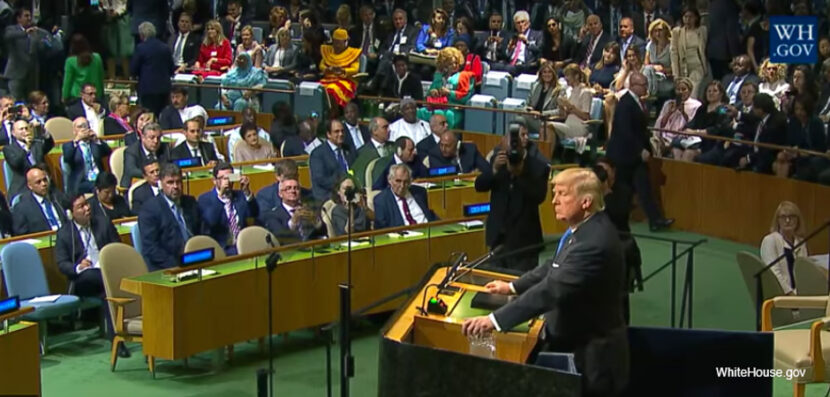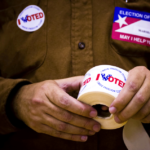
President Trump’s UN Speech
During Donald Trump’s campaign for the presidency last year, he repeatedly criticized the United Nations for being ineffective. He also said that the United States was contributing more than its share of funding to the peacekeeping organization, and that he expected other countries to contribute more. Last Tuesday, he gave his first speech in front of the UN. Rather than encourage peace, Trump’s speech worsened the relationship between the United States and North Korea.
“Rocket Man”
President Trump gave his speech in front of more than 150 international delegates. As he has done in other speeches, both as a candidate and as president, Trump stressed that he would put America first, just as other nations should put the needs of their own countries first. The president then stated that the greatest threat to world safety is rogue regimes, such as Iran and North Korea, and called North Korean leader Kim Jung Un by the nickname “Rocket Man.” Trump said that if the North Korean leader continued to threaten the United States or its allies, the U.S. will have no choice but to totally destroy the country.
Trump criticized many other nations during his speech as well. He accused Iran of not living up to its end of its 2015 nuclear deal with the UN. He called Venezuela and its authoritarian leader, Nicolas Maduro, a disaster. And he also addressed the threat of terrorists.
Kim Jung Un Responds
In the wake of Trump’s fiery speech, North Korean leader Kim Jung Un responded by calling Trump a “mentally-deranged U.S. dotard” (a dotard is an old-fashioned word meaning someone who is lazy, useless, or senile).
From there, however, things quickly escalated beyond name calling. The North Korean foreign minister Ri Yong-Ho stated that Trump’s speech amounted to a declaration of war against their country. Trump responded with a tweet saying that if North Korea continued its threats, the United States would make sure that the country wouldn’t be around much longer. Over the weekend, the United States also flew fighter jets into airspace along the North Korean coastline. Though the aircraft were technically in international waters, the move was seen as a sign of aggression by North Korean leaders, who threatened to shoot down U.S. aircraft along their coastline in the future.
Brinkmanship
Many observers and media personnel have criticized Trump’s UN speech, saying that it has provoked Kim Jung Un to a dangerous point that severely hurts the diplomatic relations, making compromise even harder to achieve. Because Trump continued to threaten North Korea in his speech, any military action by North Korea from here on out could be viewed as defensive rather than aggressive.
After Kim’s speech, North Korean foreign minister told U.S. reporters that it was possible that North Korea might respond by conducting the test of a large hydrogen bomb in the Pacific. No nuclear weapons have been tested in the planet’s atmosphere for the past 37 years. Some experts speculate that these events are similar to the Cuban Missile Crisis in October 1962.


